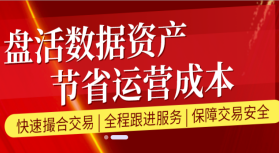关于本站
人大经济论坛-经管之家:分享大学、考研、论文、会计、留学、数据、经济学、金融学、管理学、统计学、博弈论、统计年鉴、行业分析包括等相关资源。
经管之家是国内活跃的在线教育咨询平台!
经管之家新媒体交易平台
提供"微信号、微博、抖音、快手、头条、小红书、百家号、企鹅号、UC号、一点资讯"等虚拟账号交易,真正实现买卖双方的共赢。【请点击这里访问】
期刊
- 期刊库 | 马上cssci就要更新 ...
- 期刊库 | 【独家发布】《财 ...
- 期刊库 | 【独家发布】“我 ...
- 期刊库 | 【独家发布】“我 ...
- 期刊库 | 【独家发布】国家 ...
- 期刊库 | 请问Management S ...
- 期刊库 | 英文期刊库
- 核心期刊 | 歧路彷徨:核心期 ...
TOP热门关键词
免费学术公开课,扫码加入 |
http://www.nytimes.com/2013/10/21/opinion/yes-economics-is-a-science.html?pagewanted=all&_r=1&
Yes, Economics Is a ScienceBy RAJ CHETTYPublished: October 20, 2013 363 Comments
- FACEBOOK
- TWITTER
- GOOGLE+
- SAVE
- EMAIL
- SHARE
- PRINT
- REPRINTS
- http://graphics8.nytimes.com/adx/images/ADS/38/63/ad.386339/120x60_animated_np.gif
- TWITTER
CAMBRIDGE, Mass. — THERE’S an old lament about my profession: if you ask three economists a question, you’ll get three different answers.
http://graphics8.nytimes.com/images/opinion/Twitter_Avatars/NYT_Twitter_opinion.png
Connect With Us on Twitter
For Op-Ed, follow@nytopinion and to hear from the editorial page editor, Andrew Rosenthal, follow@andyrNYT.
This saying came to mind last week, when the Nobel Memorial Prize in Economic Science was awarded to three economists, two of whom,Robert J. Shiller of Yale and Eugene F. Fama of the University of Chicago, might be seen as having conflicting views about the workings of financial markets. At first blush, Mr. Shiller’s thinking about the role of “irrational exuberance” in stock markets and housing markets appears to contradict Mr. Fama’s work showing that such markets efficiently incorporate news into prices.
What kind of science, people wondered, bestows its most distinguished honor on scholars with opposing ideas? “They should make these politically balanced awards in physics, chemistry and medicine, too,” the Duke sociologist Kieran Healy wrote sardonically on Twitter.
But the headline-grabbing differences between the findings of these Nobel laureates are less significant than the profound agreement in their scientific approach to economic questions, which is characterized by formulating and testing precise hypotheses. I’m troubled by the sense among skeptics that disagreements about the answers to certain questions suggest that economics is a confused discipline, a fake science whose findings cannot be a useful basis for making policy decisions.
That view is unfair and uninformed. It makes demands on economics that are not made of other empirical disciplines, like medicine, and it ignores an emerging body of work, building on the scientific approach of last week’s winners, that is transforming economics into a field firmly grounded in fact.
It is true that the answers to many “big picture” macroeconomic questions — like the causes of recessions or the determinants of growth — remain elusive. But in this respect, the challenges faced by economists are no different from those encountered in medicine and public health. Health researchers have worked for more than a century to understand the “big picture” questions of how diet and lifestyle affect health and aging, yet they still do not have a full scientific understanding of these connections. Some studies tell us to consume more coffee, wine and chocolate; others recommend the opposite. But few people would argue that medicine should not be approached as a science or that doctors should not make decisions based on the best available evidence.
As is the case with epidemiologists, the fundamental challenge faced by economists — and a root cause of many disagreements in the field — is our limited ability to run experiments. If we could randomize policy decisions and then observe what happens to the economy and people’s lives, we would be able to get a precise understanding of how the economy works and how to improve policy. But the practical and ethical costs of such experiments preclude this sort of approach. (Surely we don’t want to create more financial crises just to understand how they work.)
Nonetheless, economists have recently begun to overcome these challenges by developing tools that approximate scientific experiments to obtain compelling answers to specific policy questions. In previous decades the most prominent economists were typically theorists like Paul Krugman and Janet L. Yellen, whose models continue to guide economic thinking. Today, the most prominent economists are often empiricists like David Card of the University of California, Berkeley, and Esther Duflo of the Massachusetts Institute of Technology, who focus on testing old theories and formulating new ones that fit the evidence.
This kind of empirical work in economics might be compared to the “micro” advances in medicine (like research on therapies for heart disease) that have contributed enormously to increasing longevity and quality of life, even as the “macro” questions of the determinants of health remain contested.
Consider the politically charged question of whether extending unemployment benefits increases unemployment rates by reducing workers’ incentives to return to work. Nearly a dozen economic studies have analyzed this question by comparing unemployment rates in states that have extended unemployment benefits with those in states that do not. These studies approximate medical experiments in which some groups receive a treatment — in this case, extended unemployment benefits — while “control” groups don’t.
These studies have uniformly found that a 10-week extension in unemployment benefits raises the average amount of time people spend out of work by at most one week. This simple, unassailable finding implies that policy makers can extend unemployment benefits to provide assistance to those out of work without substantially increasing unemployment rates.
[size=1.5em]Other economic studies have taken advantage of the constraints inherent in a particular policy to obtain scientific evidence. An excellent recent example concerned health insurance in Oregon. In 2008, the state of Oregon decided to expand its state health insurance program to cover additional low-income individuals, but it had funding to cover only a small fraction of the eligible families. In collaboration with economics researchers, the state designed a lottery procedure by which individuals who received the insurance could be compared with those who did not, creating in effect a first-rate randomized experiment.
The study found that getting insurance coverage increased the use of health care, reduced financial strain and improved well-being — results that now provide invaluable guidance in understanding what we should expect from the Affordable Care Act.
Even when such experiments are unfeasible, there are ways to use “big data” to help answer policy questions. In a study that I conducted with two colleagues, we analyzed the impacts of high-quality elementary school teachers on their students’ outcomes as adults. You might think that it would be nearly impossible to isolate the causal effect of a third-grade teacher while accounting for all the other factors that affect a child’s life outcomes. Yet we were able to develop methods to identify the causal effect of teachers by comparing students in consecutive cohorts within a school. Suppose, for example, that an excellent teacher taught third grade in a given school in 1995 but then went on maternity leave in 1996. Since the teacher’s maternity leave is essentially a random event, by comparing the outcomes of students who happened to reach third grade in 1995 versus 1996, we are able to isolate the causal effect of teacher quality on students’ outcomes.
Using a data set with anonymous records on 2.5 million students, we found that high-quality teachers significantly improved their students’ performance on standardized tests and, more important, increased their earnings and college attendance rates, and reduced their risk of teenage pregnancy. These findings — which have since been replicated in other school districts — provide policy makers with guidance on how to measure and improve teacher quality.
These examples are not anomalous. And as the availability of data increases, economics will continue to become a more empirical, scientific field. In the meantime, it is simplistic and irresponsible to use disagreements among economists on a handful of difficult questions as an excuse to ignore the field’s many topics of consensus and its ability to inform policy decisions on the basis of evidence instead of ideology.
Raj Chetty is a professor of economics at Harvard.
免流量费下载资料----在经管之家app可以下载论坛上的所有资源,并且不额外收取下载高峰期的论坛币。
涵盖所有经管领域的优秀内容----覆盖经济、管理、金融投资、计量统计、数据分析、国贸、财会等专业的学习宝库,各类资料应有尽有。
来自五湖四海的经管达人----已经有上千万的经管人来到这里,你可以找到任何学科方向、有共同话题的朋友。
经管之家(原人大经济论坛),跨越高校的围墙,带你走进经管知识的新世界。
扫描下方二维码下载并注册APP

您可能感兴趣的文章
本站推荐的文章
人气文章
本文标题:Raj Chetty: Yes, Economics Is a science
本文链接网址:https://bbs.pinggu.org/jg/kaoyankaobo_kaoyan_3306199_1.html
2.转载的文章仅代表原创作者观点,与本站无关。其原创性以及文中陈述文字和内容未经本站证实,本站对该文以及其中全部或者部分内容、文字的真实性、完整性、及时性,不作出任何保证或承若;
3.如本站转载稿涉及版权等问题,请作者及时联系本站,我们会及时处理。



